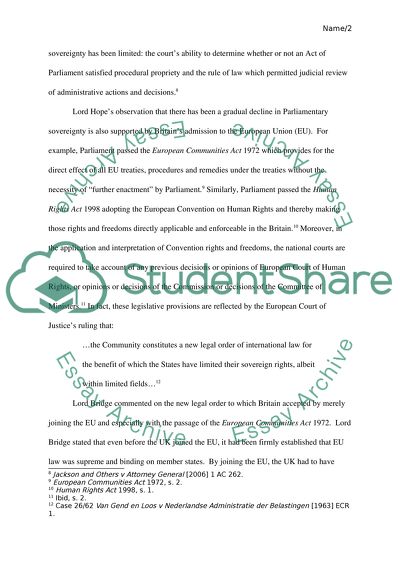Cite this document
(“Parliamentary Sovereignty Coursework Example | Topics and Well Written Essays - 1250 words”, n.d.)
Retrieved from https://studentshare.org/law/1482882-parliamentary-sovereignty
Retrieved from https://studentshare.org/law/1482882-parliamentary-sovereignty
(Parliamentary Sovereignty Coursework Example | Topics and Well Written Essays - 1250 Words)
https://studentshare.org/law/1482882-parliamentary-sovereignty.
https://studentshare.org/law/1482882-parliamentary-sovereignty.
“Parliamentary Sovereignty Coursework Example | Topics and Well Written Essays - 1250 Words”, n.d. https://studentshare.org/law/1482882-parliamentary-sovereignty.


